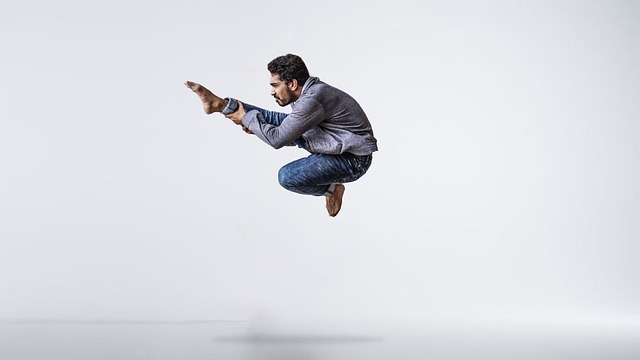Have you ever dreamed of taking the stage and showcasing your belly dance skills? The excitement of your first performance is undeniable, but it also comes with a need for careful preparation. To ensure a successful debut, it is crucial to select the right song for your performance. Seeking guidance from your instructor and utilizing online resources can help you find suitable options. However, it’s important to be cautious when selecting songs in different languages or with potentially offensive lyrics. Translations and understanding the lyrics are essential to avoid any unintended misinterpretations. Once you have chosen the perfect song, you must decide whether to choreograph or improvise your routine. This decision depends on your personal preference and dance experience. If you’re struggling with choreography, don’t hesitate to seek help from your instructor. Additionally, preparing your costume and makeup, practicing in your attire, and ensuring technical readiness are crucial steps to guarantee a smooth and confident performance. In this article, we will provide you with valuable tips and guidance to help you prepare for your first belly dance performance.
Key Takeaways
- Choose a song that is simple, repetitive, and has a clear beat
- Keep your performance short to avoid overwhelming yourself
- Seek help from your instructor if you’re struggling with choreography
- Keep your costume simple and secure with pins, considering the venue and stage conditions
Tips for Song Selection

One important aspect to consider when preparing for your first belly dance performance is the selection of a suitable song, taking into account factors such as language, lyrics, beat, and length. Finding the right tempo is crucial, as it sets the overall mood and energy of the performance. It is important to choose a song that resonates with you and reflects your personal style and preferences. Additionally, considering the audience’s preferences can help ensure a positive reception. It is advisable to avoid songs with potentially offensive lyrics or in a language that may not be understood by the audience. A simple and repetitive beat can be beneficial for a first performance, as it allows for easier choreography and memorization. Lastly, keeping the performance length reasonable can help maintain the audience’s interest and prevent exhaustion.
Choreography or Improvisation

Opting for either choreography or improvisation can depend on personal preference and dance experience, with the decision hinging on the desire for structured movements or the freedom to express oneself in the moment. Both choreography and improvisation have their own pros and cons.
Choreography allows for precise and planned movements, providing a sense of security and confidence for beginners. It allows dancers to showcase their technical skills and ensure synchronization with the music. However, choreography can be time-consuming and may require extensive rehearsal and memorization.
On the other hand, improvisation offers spontaneity and the ability to connect with the music on a deeper level. It allows dancers to express their creativity and adapt to the energy of the audience. However, improvisation requires a strong understanding of musicality and the ability to think on one’s feet.
Ultimately, the choice between choreography and improvisation comes down to personal preferences and comfort level. Some dancers may prefer the structure of choreography, while others thrive in the freedom of improvisation. It is important to experiment with both styles and find what works best for individual dancers.
| Pros of Choreography | Pros of Improvisation |
|---|---|
| Precise and planned movements | Spontaneity and connection with music |
| Synchronization with music | Creativity and adaptability |
| Showcasing technical skills | Expressing individuality |
| Building confidence through rehearsal | Freedom from set movements |
| Creating a visually stunning performance | Personal growth as a dancer |
Preparing Your Costume and Makeup

To ensure a polished and professional appearance, careful consideration should be given to the selection and preparation of the costume and makeup for a belly dance performance. The right accessories can enhance the overall look and add flair to the performance. Consider choosing accessories that complement the costume and reflect the style of the dance. Additionally, proper makeup preparation is crucial for a successful performance. Start by ensuring that your skin is clean and moisturized. Use a primer to create a smooth canvas and apply foundation to even out your complexion. Accentuate your eyes with bold eyeliner and eyeshadow, and consider experimenting with false eyelashes for a dramatic effect. Finally, complete the look with a vibrant lip color that matches the theme of the performance. By paying attention to these details, you can create a visually stunning and captivating performance.
Frequently Asked Questions
How do I calm my nerves before my first performance?
To calm nerves before a performance, try practicing meditation techniques such as deep breathing exercises. Deep breaths can help regulate the body’s stress response and promote relaxation. Incorporating these techniques into a pre-performance routine may help reduce anxiety and promote a sense of calm.
What should I do if I make a mistake during my performance?
When faced with a mistake during a performance, dancers can navigate the situation by maintaining composure, adapting seamlessly, and recovering gracefully. These techniques allow performers to handle and overcome mishaps, ensuring a smooth and professional presentation.
How do I handle stage fright?
Overcoming stage fright involves various strategies such as deep breathing exercises, visualization techniques, and positive self-talk. Building confidence can be achieved through rehearsal, seeking feedback, and gradually exposing oneself to performing in front of others.
What should I do if I forget part of my choreography during the performance?
In the event of forgetting part of your choreography during a performance, it is important to remain calm and composed. Take a moment to gather your thoughts, improvise if necessary, and seamlessly rejoin the routine.
How do I engage with the audience during my performance?
To engage with the audience during a performance, belly dancers can use eye contact, smiling, and body language. Creating a connection through these nonverbal cues enhances stage presence and invites the audience to feel involved in the performance.
